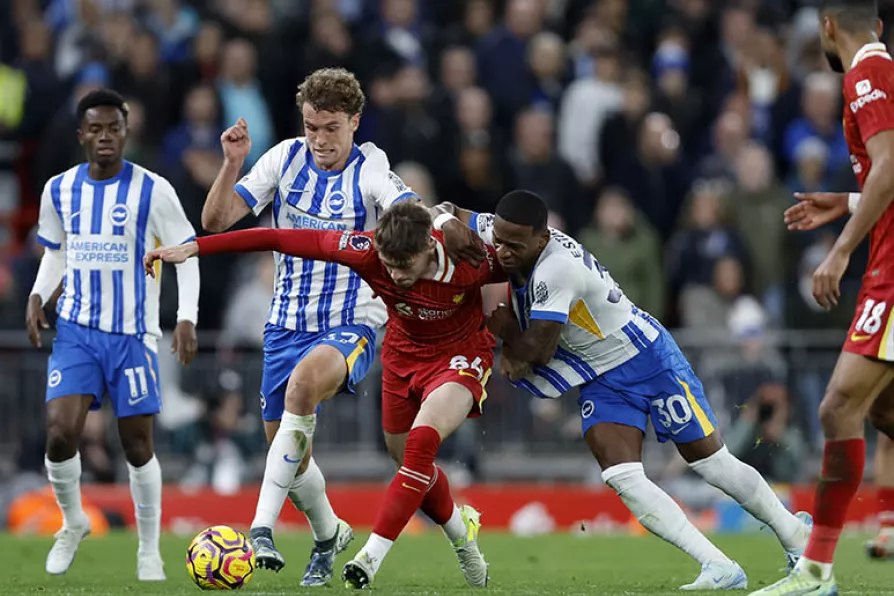Match report: Liverpool 2-1 Brighton
by James Nalton
at Anfield

 Liverpool's Conor Bradley (centre) and Brighton & Hove Albion's Pervis Estupinan (right) and Mats Wieffer (left) during the Premier League match at Anfield, Liverpool.
Liverpool's Conor Bradley (centre) and Brighton & Hove Albion's Pervis Estupinan (right) and Mats Wieffer (left) during the Premier League match at Anfield, Liverpool.
THE merits of the Anfield atmosphere is a regular topic of discussion for Liverpool fans and opposition fans alike, but on Saturday afternoon there’s no denying that it helped the home side to an important comeback against Brighton.
Liverpool manager Arne Slot said that it was the loudest he’d heard Anfield since arriving at the club in the summer and Brighton manager Fabian Hurzler said it affected his players.
Liverpool were 1-0 down at half-time after Ferdi Kadioglu had given the visitors a deserved lead.
Similar stories

Slot’s Reds face potential attacking blow with Salah away and Isak injured

JAMES NALTON writes on how the title win has sparked long-awaited celebrations among fans after a triumph four years — and one pandemic — in the making












